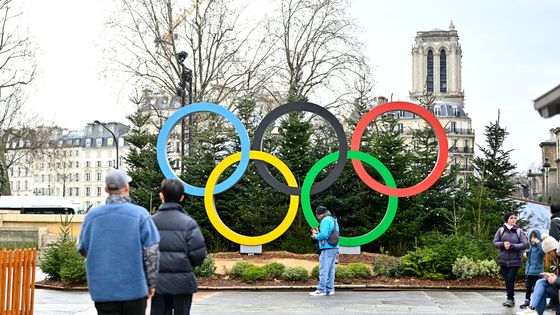
A great popular celebration, a great celebration different from the others, the organizers of the 2024 Olympic Games which will be organized in Paris, have offered places at more than 900 euros. It is a somewhat special popular, not to say luxurious. This is the Superfail of the week, analyzed by Pierre Rondeaueconomist specializing in sports economics and co-director of the Sport and Society Observatory at the Jean Jaurès Foundation.
Ticket prices too high?
First question that we can legitimately ask ourselves, are the ticket prices for these 2024 Olympics higher than the prices offered at previous editions of the Olympic Games? When we look at the previous Olympics, the prices remain fairly similar on average according to Pierre Rondeau . But the difference lies in the very large gap between the cheapest and most expensive tickets for these games: “In Paris, the most expensive tickets on the new market, we reach 900 euros. For the opening ceremony, for example, there will be free tickets, but VIP grandstand tickets can go up to 25,000 euros. (…) So we really have very strong disparities.
To understand these significant disparities, it is necessary to understand how the budget for the 2024 Olympics is structured. On the one hand, the COGOP in charge of organizing the games is financed by private funds, while on the other hand, SOLIDEO, responsible for building the infrastructure is financed by public funds. However, COGOP relied heavily on ticketing to balance its budget: “The ticket office is only used to finance the organization and as the organization is expensive – 4 billion – and that the State brings only little money, the COGOP relies on the ticket office”, explain Pierre Rondeau.
A budget already exceeded: the false promise of sober games
When Paris was announced to host the 2024 Olympic Games, the official communication insisted on the sobriety of these games, and on the limited cost of the budget allocated to the organization of this world event. However, the budget has already been exceeded to date, and the overrun is likely to get even worse in the months to come, as explained by Pierre Rondeau : “When getting the games in 2017, the budget was 6.8 billion, we are at 8.5 billion so we suffered budget inflation, we suffered an increase in costs. (…) Can- be that in 2025, we will reach 9 billion.”
For the economist Pierre Rondeau, the problem comes rather from the communication of the organizers of the Olympic Games on the sobriety and the accessibility of the games than on the price of the tickets: “The Olympics are the first competition in the world, if you want to be very pragmatic and rational, you have to pay. (…) The mistake was to sell us in terms of communication of the democratic, popular Olympics and open.”

